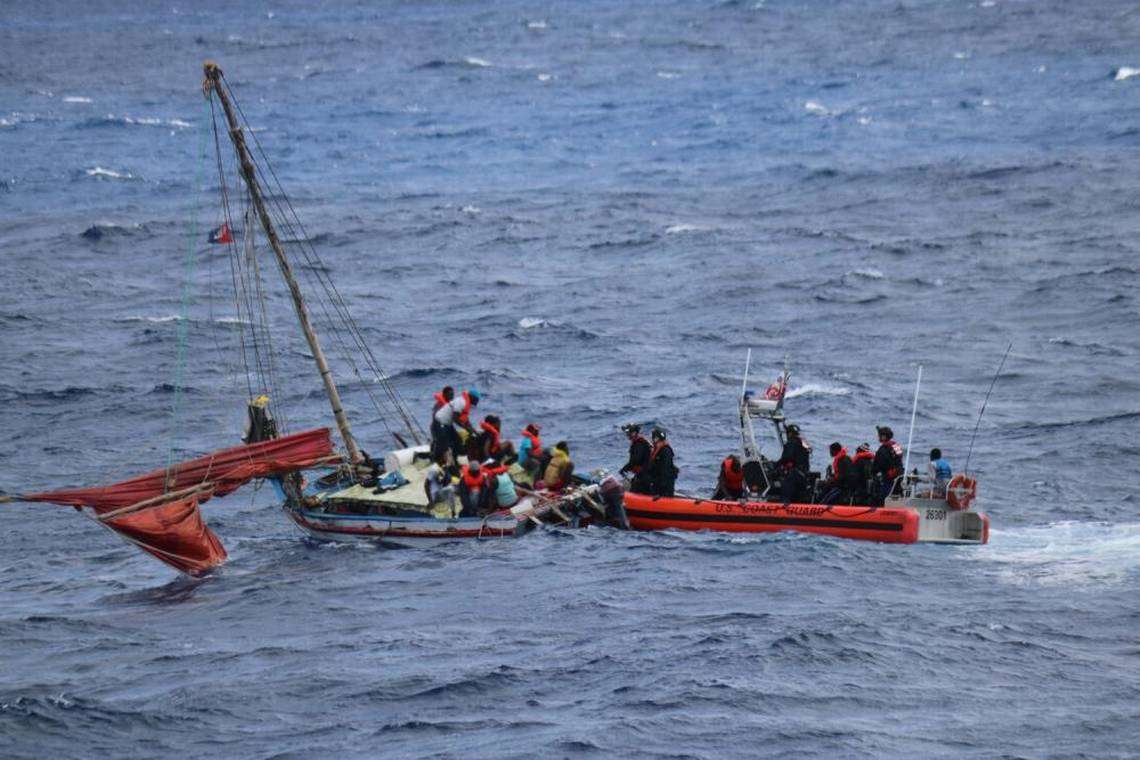Caribbean Nations Address Misinformation Regarding US Immigration Policy.
The swirling tide of misinformation regarding US immigration policies under the Trump administration caused significant anxiety across the Caribbean, fueled by social media’s propensity to amplify rumors and anxieties. False claims circulated, ranging from the imminent deportation of thousands of Jamaicans to the existence of extensive federal lists targeting undocumented immigrants. While the Trump administration’s rhetoric undoubtedly leaned towards stricter immigration enforcement, the reality on the ground was far more nuanced than these sensationalized narratives portrayed. The situation underscored the vulnerability of Caribbean nations, deeply interconnected with the US through migration and remittances, to shifts in American political winds. The lack of clear and reliable information from official sources only exacerbated the existing anxieties, leaving many Caribbean communities in a state of uncertainty and fear.
A significant factor contributing to the widespread concern was the substantial Caribbean diaspora residing in the United States. In 2014, an estimated four million Caribbean immigrants lived in the US, representing a significant portion of the overall immigrant population. These individuals, primarily hailing from Cuba, the Dominican Republic, Jamaica, Haiti, and Trinidad and Tobago, formed a vital bridge between their home countries and the US, often sending remittances that played a crucial role in their families’ economic well-being. The prospect of mass deportations threatened not only to disrupt the lives of these individuals but also to destabilize the economies of their home countries, which relied heavily on these financial inflows. The potential economic fallout became a focal point of anxiety for governments and citizens alike.
Caribbean governments responded to the escalating anxieties in various ways, seeking to both address the immediate concerns of their citizens and prepare for potential economic ramifications. Jamaica’s foreign minister, Kamina Johnson Smith, publicly refuted the exaggerated claims of mass deportations while acknowledging the possibility of an increase in repatriations. She emphasized the importance of adhering to due process and expressed concern about the challenges posed by returning individuals with criminal records. Similarly, St. Lucia and St. Vincent and the Grenadines took proactive steps to mitigate potential economic fallout. St. Lucia established a task force to assess and address the possible impact of US trade tariffs, while St. Vincent and the Grenadines’ prime minister voiced concerns regarding the lack of information about deportees’ backgrounds, which complicated reintegration efforts.
The overarching concern revolved around the potential disruption of remittances, a vital lifeline for many Caribbean families. The fear was that breadwinners working in the US, regardless of their legal status, could be deported, leaving families without their primary source of income. The potential economic consequences were substantial, with remittances projected to reach $18.4 billion in 2024. This reliance on remittances highlighted the complex economic interdependence between the US and the Caribbean, where the fortunes of families in one region were inextricably linked to policies enacted in another. The situation underscored the vulnerability of Caribbean economies to external shocks and the need for diversification and strengthened social safety nets.
The diverse nature of the Caribbean diaspora in the US added another layer of complexity to the situation. Some individuals had overstayed their visas without committing any other offenses, while others had criminal records. This differentiation was crucial, as the consequences of deportation varied significantly depending on individual circumstances. For those with criminal records, reintegration into their home countries presented unique challenges, requiring support systems to facilitate their successful transition back into society. For those who had merely overstayed their visas, the disruption to their lives and the lives of their families was no less significant, highlighting the human cost of immigration policies and the need for humane and equitable solutions.
In response to the evolving landscape, experts urged proactive measures. Marlon Hill, a Jamaican-American lawyer, encouraged eligible Caribbean residents in the US to pursue citizenship as a means of protecting themselves and their families. This proactive approach aimed to minimize the impact of potential policy changes and ensure the stability of families with ties to both the US and the Caribbean. The situation also emphasized the importance of strong advocacy on behalf of Caribbean interests within the US political system. By engaging actively and strategically, Caribbean nations could hope to influence policy decisions and protect the well-being of their diaspora communities. This proactive approach, combining individual action with diplomatic efforts, offered the best hope for navigating the uncertainties of the evolving immigration landscape.
Share this content:












Post Comment